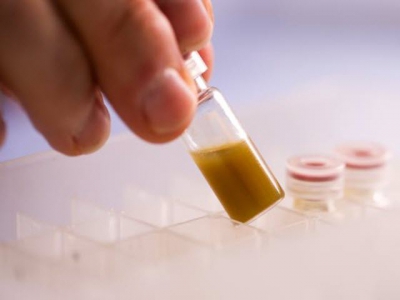New in vitro tool estimates ruminal protein degradability

Meeting protein requirements and improving nitrogen efficiency in cows under different physiological conditions can be more precise using new tool for diet formulation.
Scientists from Alltech and Alimetrics have collaborated on a study which compares the rumen degradability and effects on rumen fermentation of three protein sources: whey protein, soybean meal and yeast-derived microbial protein.
A new laboratory fermentation method for assessing the ruminal breakdown of dietary protein ingredients has been developed by Alltech and Alimetrics Research.
According to the announcement from Alltech, the novel technique was developed to evaluate feed protein sources and involves measuring the proportion of certain amino acids that are converted to specific end products over 24 hours.
Scientists from Alltech and Alimetrics collaborated on the study, which has been published in the scientific journal Frontiers in Veterinary Science. Alltech said the study compared the rumen degradability and effects on rumen fermentation of three protein sources: whey protein, soybean meal and yeast-derived microbial protein.
The assessment of protein degradation in the rumen of live animals historically has been difficult, and although analysis of overall protein can be done, tracking the origin of protein from a specific feed component cannot be done with great certainty, according to Alltech.
In addition, ruminants have a low overall efficiency of nitrogen utilization, with between 70% and 95% of the nitrogen in diets excreted in feces and urine based on data from the U.N. Food & Agriculture Organization, Alltech added.
The use of this novel in vitro technique can help overcome such challenges as it allows protein sources to be ranked according to their degradability by rumen bacteria, Alltech said.
“When it comes to comparing protein sources, we believe this tool is particularly useful when some known and commonly used benchmark products, such as soybean meal, are included in a study,” said Dr. Juha Apajalahti, managing director at Alimetrics.
According to the announcement, data from the study indicate that the yeast-derived microbial protein was the most resistant of all three protein sources to being degraded in the rumen, with less than 15% of the amino acids of interest being converted to the measured end products. Additionally, the study showed that the level of the protein breakdown product -- ammonia -- from yeast-derived microbial protein was able to be taken up by the rumen bacteria, reducing excess rumen ammonia accumulation.
Evaluation of other parameters demonstrated that the yeast-derived microbial protein was able to extensively stimulate rumen fermentation to the same extent as soybean meal, Alltech said, which suggests that this novel method is suitable for assessing ruminal breakdown of protein feeds.
“In terms of research methodology, this provides us with a robust model for screening products both for fermentation effects and the ability to bypass protein through the rumen,” Alltech vice president Matthew Smith said.
Có thể bạn quan tâm
Phần mềm

Phối trộn thức ăn chăn nuôi

Pha dung dịch thủy canh

Định mức cho tôm ăn

Phối trộn phân bón NPK

Xác định tỷ lệ tôm sống

Chuyển đổi đơn vị phân bón

Xác định công suất sục khí

Chuyển đổi đơn vị tôm

Tính diện tích nhà kính

Tính thể tích ao hồ



 Five tips for making high-quality flaked corn for…
Five tips for making high-quality flaked corn for…  Research center focuses on improving cattle forage
Research center focuses on improving cattle forage